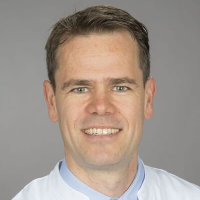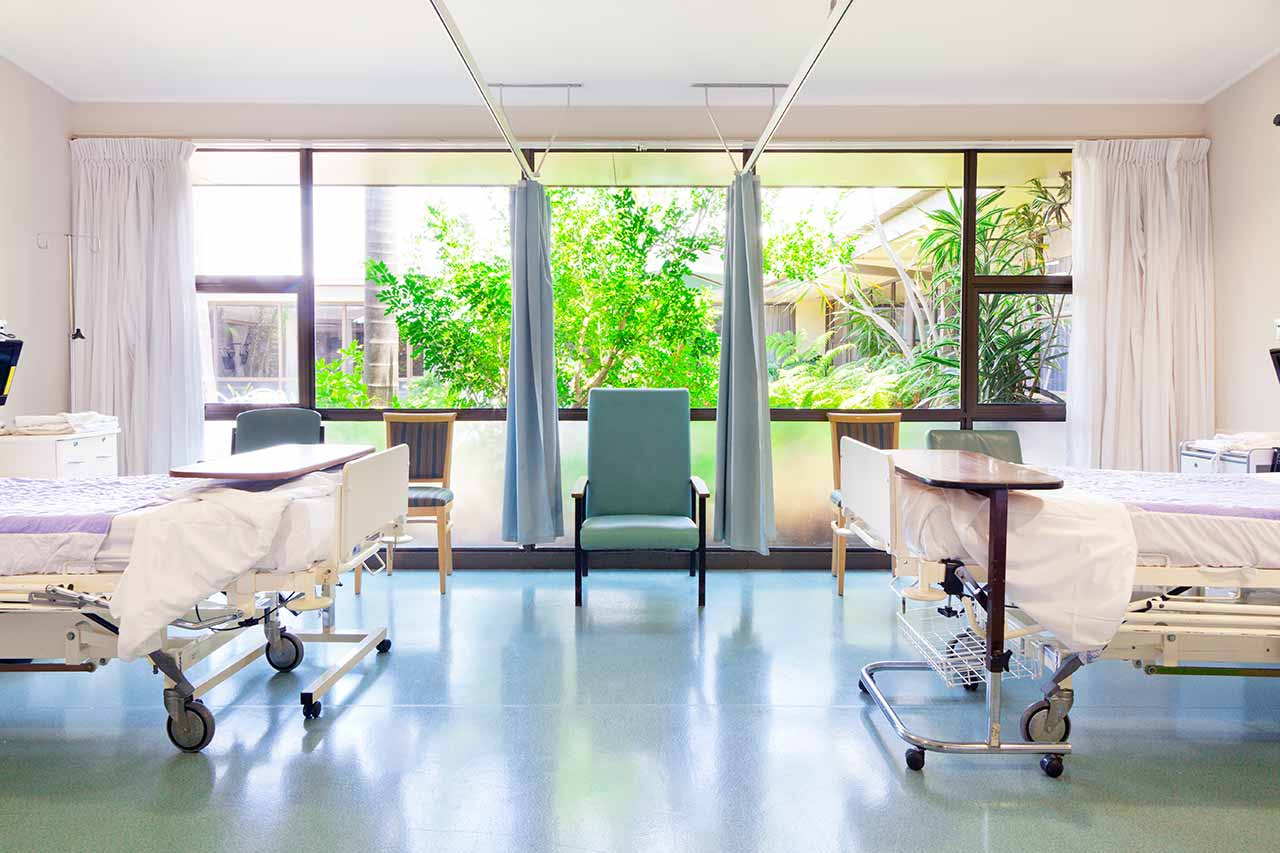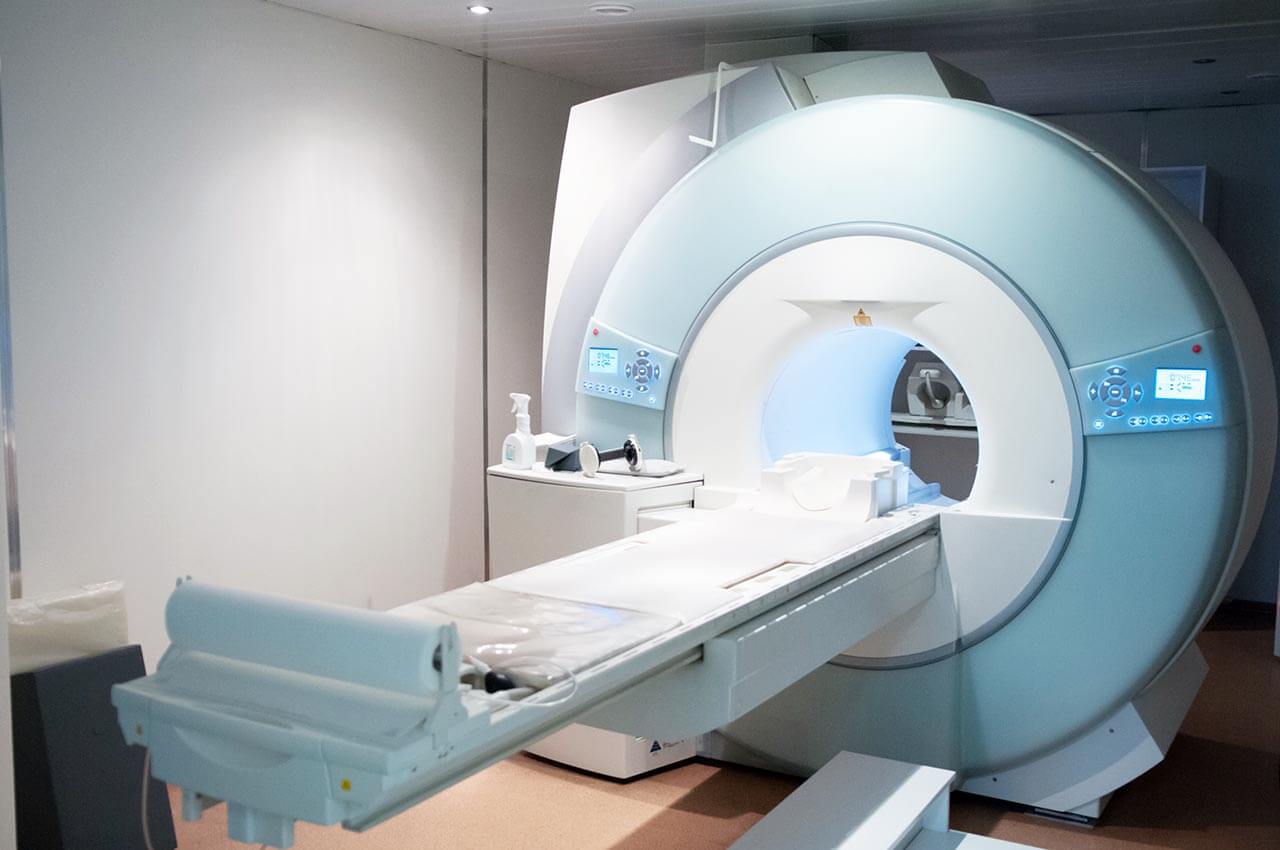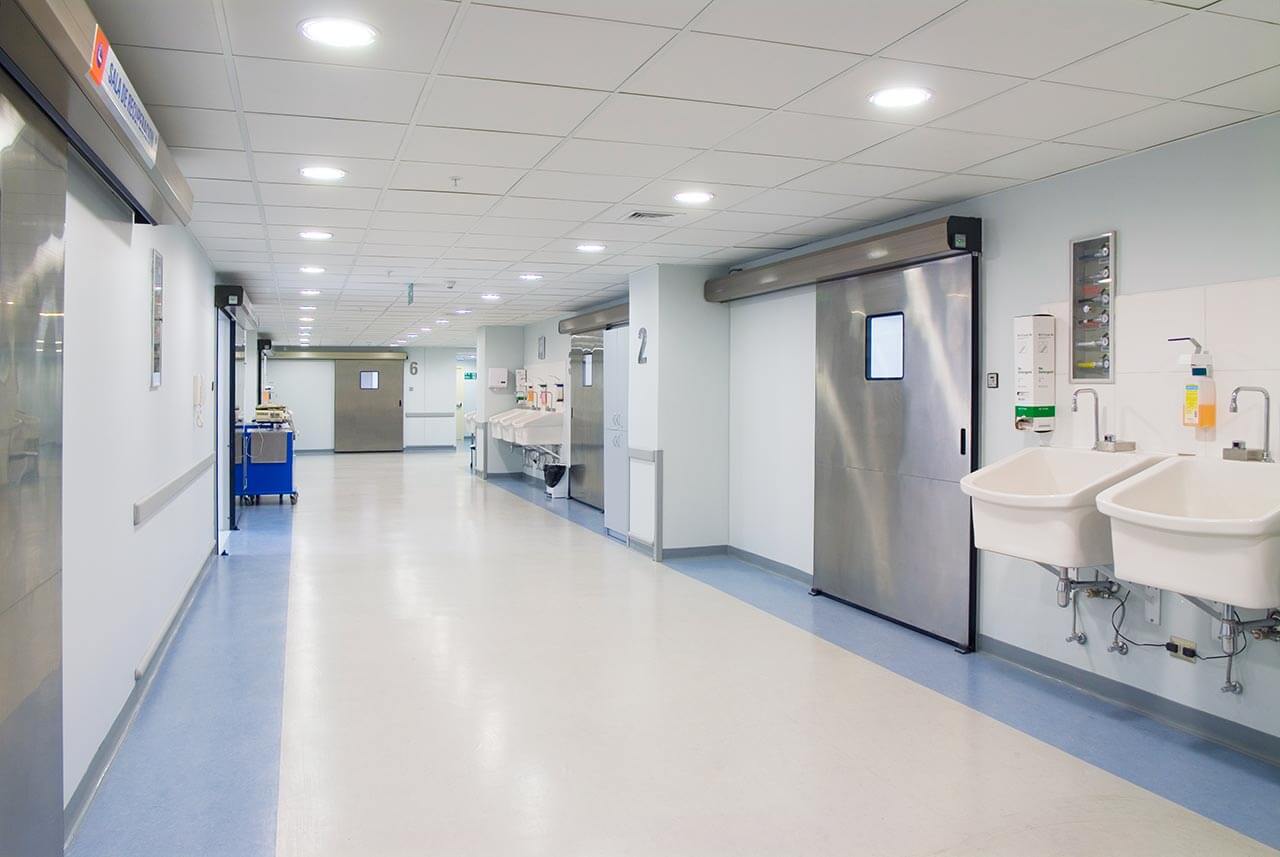
The program includes:
- Initial presentation in the clinic
- case history collection
- review of medical records
- general clinical examination
- laboratory tests:
- complete blood count
- biochemical blood test
- blood glucose
- insulin and C-peptide secretion
- general urine analysis
- tumor markers (CEA, CA19-9, AFP)
- inflammation markers (CRP, ESR)
- blood coagulation analysis (aPTT, PT, INR)
- ultrasound of the abdomen
- gastroscopy
- CT/MRI of the abdomen (if clinically indicated, additional cost is 650/1200€)
- biopsy of the pancreas under CT control (if clinically indicated, additional cost is 2500€)
- nursing services
- services of all leading experts
- explanation of individual treatment plan
Required documents
- Medical records
- MRI/CT scan (not older than 3 months)
- Biopsy results (if available)
Service
You may also book:
 BookingHealth Price from:
BookingHealth Price from:
About the department
The Department of Gastroenterology, Hepatology and Endocrinology at the University Hospital Saarland Homburg offers the widest range of preventive, diagnostic, and therapeutic services in the areas of its competence. The department's doctors admit patients with gastrointestinal diseases, liver, gallbladder, and bile duct pathologies, as well as thyroid, parathyroid, and adrenal diseases. In addition, the department specializes in treating type 1 and type 2 diabetes mellitus (certified by the German Diabetes Association) and offers competent dietary counseling. The medical facility has modern diagnostic and treatment rooms equipped with the very latest technology. There is also an advanced Endoscopy Unit, which annually treats more than 5,000 patients. As part of specialized outpatient clinics, the department's doctors annually admit over 10,000 patients for diagnostics and treatment. The health of patients is in the safe hands of highly qualified doctors with long experience, which, combined with a modern medical and technical base, contributes to the best therapeutic results. The department is headed by Prof. Dr. med. Jörn Schattenberg.
The department has excellent resources for the provision of medical care to patients with gastrointestinal diseases, namely pathologies of the stomach, esophagus, small and large intestines, rectum, and pancreas. Particular attention is paid to the treatment of gastrointestinal cancers, functional disorders of the stomach and intestines, and chronic inflammatory bowel disease. Doctors carry out laboratory tests and functional and endoscopic examinations to make a diagnosis. Therapeutic options include drug therapy, endoscopic procedures, or a combination of these techniques. In many cases, diet therapy is necessary. If the patient is indicated for surgery, abdominal surgeons are involved in the treatment process. Endoscopic removal of stomach and intestinal polyps, as well as early-stage digestive malignancies, is frequently performed by the department's specialists. They also perform hemostasis for gastrointestinal bleeding and stent implantation for gastrointestinal stenosis or obstruction. Endoscopic treatment is performed on state-of-the-art equipment within a specialized unit that is one of the largest in Germany. The effectiveness of endoscopic procedures constantly remains high, and therefore more and more patients come to the department every year, including from abroad.
In the field of hepatology, liver, gallbladder, and bile duct diseases are diagnosed and treated. Of particular interest in this medical field are radiofrequency ablation (RFA) and percutaneous ethanol injections for treating early-stage liver tumors. The essence of radiofrequency ablation is the insertion of electrodes into the tumor and its exposure to radio waves, which cause the heating and destruction of malignant tissue. Radiofrequency ablation is a highly effective procedure with virtually no complications. In addition, RFA takes a short amount of time and combines well with other treatments, including chemotherapy and/or radiation therapy. As for percutaneous ethanol injections, this method is indicated for patients with contraindications to surgical tumor resection. The therapeutic effect is achieved by introducing concentrated ethanol into the tumor, which causes its destruction. Percutaneous ethanol injections are performed using a special needle under ultrasound guidance. Ultrasound guidance makes it possible to ensure the injection of ethanol directly into the oncological focus while monitoring the process of soaking the neoplasm with ethyl alcohol. The therapeutic manipulation may cause minor side effects (pain, fever, etc.), which are easily eliminated with symptomatic treatment. At the same time, ethanol injections practically do not cause any complications and give good results.
The team of endocrinologists at the medical facility focuses on patients with diseases of the thyroid gland, parathyroid glands, pituitary gland, and adrenal glands. Endocrine disorders most often lead to insufficient or excessive production of a certain group of hormones, so the task of doctors is to normalize the patient's hormonal levels. To do this, the department's specialists develop a hormone replacement therapy regimen or, conversely, suppress excess hormone production. If a patient is diagnosed with benign or malignant endocrine tumors, endocrine surgeons will perform the resection. After partial resection or total removal of an endocrine organ, such as the thyroid gland, lifelong hormonal therapy is required.
The department also admits patients with type 1 and type 2 diabetes mellitus. The medical facility is certified as a specialized Diabetes Center by the German Diabetes Society (DDG), so patients can count on top-class medical care. Doctors perform laboratory tests, such as hormonal tests, biochemistry blood tests, urinalysis, and others, to confirm or exclude diabetes mellitus. The department's specialists also study the patient's medical history and are interested in his complaints. Patients with type 1 diabetes mellitus are indicated for insulin therapy in the form of injections with a syringe or with an insulin pump, which accurately doses insulin in accordance with the instructions of the patient's attending physician. Type 2 diabetes mellitus is often treated with hypoglycemic drugs that help lower blood glucose levels. Depending on the particular clinical case, people with type 2 diabetes mellitus may require insulin therapy. In addition, an integral part of the therapeutic process for type 1 and type 2 diabetes mellitus is lifestyle modification, which involves dietary adherence, regular dosed physical activity, and cessation of smoking and alcoholic beverages. The department also provides medical care to patients with diabetic foot syndrome, one of the most common complications of diabetes mellitus. Such patients are admitted to a specialized outpatient clinic.
The department's range of medical services includes:
- Diagnostic options
- Laboratory blood tests, urine tests, hormone tests, genetic tests (to assess the risk of inheritance of certain gastroenterological diseases), etc.
- Gastrointestinal function tests
- 24-hour pH metry
- Esophageal manometry
- 13C urea breath test
- Endoscopic examinations
- Endosonography
- Gastroscopy
- Colonoscopy
- Endoscopic retrograde cholangiopancreatography
- Percutaneous transhepatic cholangiography
- Chromoendoscopy
- Narrow band imaging
- Capsule endoscopy
- Double balloon enteroscopy
- Ultrasound examinations of the digestive system and endocrine glands
- Imaging tests: CT, MRI, and PET/CT scans
- Therapeutic options
- Drug therapy with pills
- Injection and infusion therapy
- Hormone replacement therapy for endocrine disorders
- Insulin therapy with injections and insulin pump therapy
- Photodynamic therapy for bile duct tumors
- Radiofrequency ablation (RFA) and percutaneous ethanol injections for early-stage liver tumors
- Endoscopic therapeutic procedures
- Endoscopic removal of gastrointestinal polyps and early-stage tumors
- Hemostasis for gastrointestinal bleeding
- Stent implantation for gastrointestinal stenosis or obstruction
- Percutaneous transhepatic biliary drainage
- Endoscopic sclerotherapy for esophageal varices
- Foreign body removal from the gastrointestinal tract
- Placement of permanent probes for enteral nutrition (PEG and PEJ)
- Other diagnostic and treatment methods
Curriculum vitae
In November 2023, Prof. Dr. med. Jörn Schattenberg became Head of the Department of Gastroenterology, Hepatology and Endocrinology at the University Hospital Saarland Homburg.
The specialist studied medicine at Johannes Gutenberg University of Mainz (Germany), the Leopold and Franz University of Innsbruck (Austria), and Tulane University (USA). Prof. Schattenberg completed his postgraduate studies at the Albert Einstein College of Medicine in New York (USA) and worked there to study the pathophysiology of acute and chronic liver diseases. He completed his clinical training for board certification in internal medicine with a specialization in gastroenterology and hepatology at the University Hospital Mainz. The specialist also took an active part in the founding of the Center for Gastrointestinal Diseases, integrated into the Comprehensive Cancer Center at the University Hospital Mainz.
A key area of Prof. Schattenberg's research activities is the development of new methods for diagnosing and treating liver diseases. Together with international partners, he has developed new methods for the early detection, prevention, and treatment of metabolic liver diseases.
Photo of the doctor: (c) Universitätsklinikum des Saarlandes
About hospital
The University Hospital Saarland Homburg is the largest hospital in the city of Homburg and the most important medical facility in the region. The hospital, which currently has 30 specialized departments and 20 institutes, was founded in 1947 and operates on the basis of Saarland University. The hospital plays a leading role in medical education, research, and medical care both in the state of Saarland and throughout Germany. With vast experience in serving foreign patients, the medical facility is also widely known in the international medical arena.
The pride of the hospital is state-of-the-art equipment that allows the doctors to perform high-precision comprehensive diagnostics and the most sparing treatment even if a patient has a severe pathology. Patients are offered innovative medicine based on the very latest scientific achievements. At the same time, the hospital offers many therapeutic methods that are used only in leading medical centers in Europe, including da Vinci robot-assisted surgery, CAR T-cell therapy, TAVI and MitraClip catheter-based procedures, innovative laser procedures, etc. Great importance is paid to ethical and social competence. The hospital is constantly improving the work of its medical personnel and infrastructure to provide medical services that meet the highest standards.
As a multidisciplinary medical complex, the hospital offers highly effective treatment of the full range of common diseases as well as rare and severe pathologies. The efforts of the medical staff, which includes over 600 doctors and 2,000 nurses, are focused on the patient and their unique needs and desires. The doctors always devote enough time to personal communication with their patients, provide them with moral support, and are sympathetic to every life situation.
Photo: (с) depositphotos
Accommodation in hospital
Patients rooms
The patients of the University Hospital Saarland Homburg live in comfortable single, double, and triple patient rooms with a modern design. Each room is equipped with an ensuite bathroom with a shower and a toilet, as well as everything else necessary: a comfortable bed, a bedside table, a TV, and a telephone. In addition, enhanced-comfort rooms and specially equipped rooms for people with disabilities are available for the patients.
Meals and Menus
The hospital offers healthy and delicious meals three times a day: buffet breakfast, dinner with a wide choice of dishes for every taste, and a light supper. The menu features dietary and vegetarian dishes. There is also a cafeteria on the territory where one can taste delicious dishes and have a cup of coffee, tea, or some refreshing drinks
Further details
The standard patient rooms include:
Religion
The hospital regularly hosts catholic and evangelical devine services. The services of representatives of other religions are available upon request.
Accompanying person
During an inpatient program, an accompanying person can stay with you in the patient room or in a hotel of your choice.
Hotel
During an outpatient program, you can stay in a hotel of your choice. The managers will help you choose the most suitable options.





